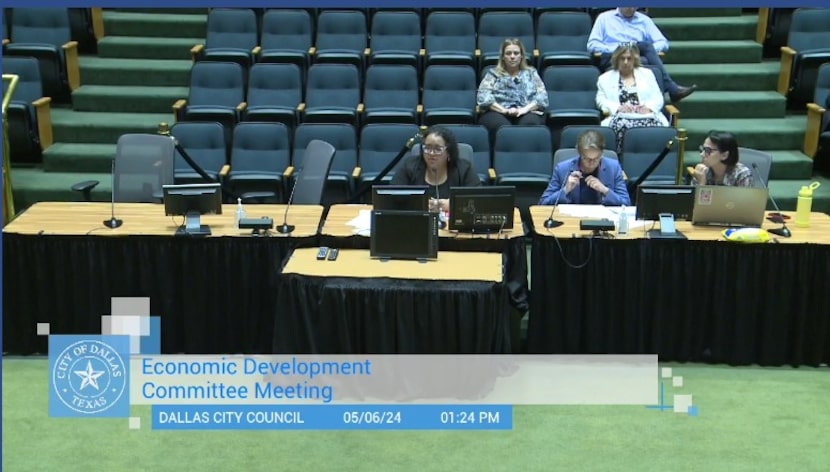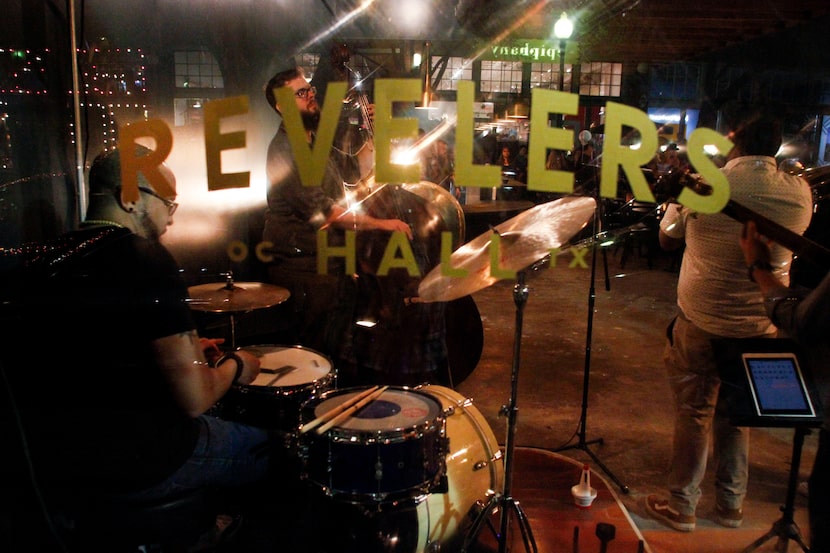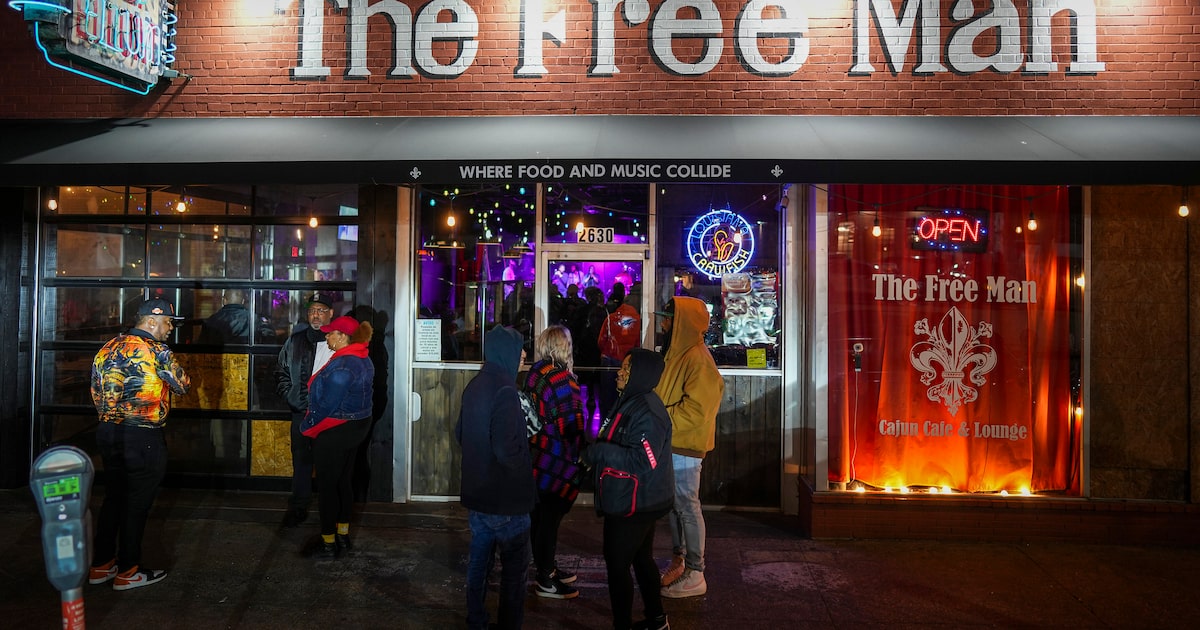
There’s a press conference scheduled Friday during which city officials will discuss the Nighttime Entertainment Strike Team that’s been going after popular, well-regarded restaurants who charge their patrons for live music. But before we get there, we really should discuss how it even came to exist. Because it says a lot about how this city operates these days. Or, rather, doesn’t.
To understand what’s happened, we have go all the way back to Sept. 4, when Dallas City Hall formally and finally announced the creation of its Nighttime Economy & Responsible Hospitality Division, what the press release hailed as a “first-of-its-kind initiative designed to strengthen Dallas’ nightlife, cultural economy, and global event readiness.” But as of this writing, I cannot tell you who works for it. Or what it does. I can’t even tell you if it exists.
At a time when officials are using antiquated, seldom-enforced city codes to crack down on restaurant owners charging for live music so they can pay the bands, at a time when the city is gearing up for an influx of World Cup visitors, it seems kind of important. But when I asked city officials Monday if the generally well-regarded Edward Grant was still manager of the Nighttime Economy & Responsible Hospitality Division, city spokesperson Rick Ericson would only say, via email, “We can not answer personnel questions.”
Yes, they can. And they should. They just won’t.
I started asking last week about that Nighttime Economy Division, right after the city’s puffed-chested Nighttime Entertainment Strike Team issued notices of violations to The Free Man in Deep Ellum and Revelers Hall in Bishop Arts for paying their musicians, the nerve.
I asked city officials if and how the Nighttime Economy Division, created to grow what the city says is a $15 billion industry, and its codetroopers were related and, if so, why. And I still haven’t received an answer.
Opinion

Rosa Fleming, director of Convention and Event Services, introduced the Nighttime Economy and Responsible Hospitality Division to a Dallas City Council committee last year.
City of Dallas
The Nighttime Economy Division was originally supposed to operate under the kindly auspices of the Office of Arts and Culture but, for reasons unknown, it was punted to Code Compliance, which now oversees the Nighttime Entertainment Strike Team.
“One feels like it’s there for promotion, while the other feels like it’s more for policing,” Jason Roberts, co-owner of Revelers Hall, said Monday after he’d found out about the division’s move from culture to code. “One is our friend; the other, not so much.”
Originally, the Nighttime Economy Division reported to Convention and Event Services director Rosa Fleming, who introduced it to the City Council’s Economic Development Committee in May 2024. Fleming, who is overseeing the construction of a new $3.7 billion-and-rising convention center but doesn’t talk to the media, told the council that the newly formed division would look “at how we are working with our entertainment districts across the city.”
According to the city’s recently adopted budget, the Nighttime Economy Division was going to transition during the 2025-26 fiscal year to the Office of Arts and Culture “for increased functional alignment.” That, too, is what the Arts & Culture Advisory Commission was told in September.
At its meeting last month, commissioner and Deep Ellum Foundation board member Damany Daniel said, “I think the office of Nighttime Economy and what Eddie Grant is doing over there is unmatched, unparalleled in another city.”

Revelers Hall will host a media conference Friday with city officials to discuss the code crackdown by the Nighttime Entertainment Strike Team.
Brian Elledge / Staff Photographer
But less than two weeks ago, the commission was informed that Assistant City Manager Robin Bentley “thought it best to consolidate the city’s nighttime efforts and shift that division to the Code Compliance Department.”
Daniel was furious, blasting the decision as a “colossally bad idea” and threatening to complain to the City Council.
“I think that is one of the worst decisions for creating a culture of the arts,” Daniel said, to which one of his fellow board members responded with a hearty, “Hear! hear!”
Moving the Nighttime Economy Division to code compliance, Daniel said, “makes it less about engagement and more about enforcement, which is not what the goal is.”
Monday afternoon I asked Bentley, among others, why the move was made. All I got was this from Ericson: “All nighttime staff have been consolidated under Code Compliance.”
City officials don’t have much to say. And Eddie Grant couldn’t be reached by phone or text. But plenty of other folks have plenty to say, including former Virginia police officer Dimitrios Mastoras, whose company, Safe Night, was brought to Dallas nearly four years ago by the nonprofit 24HourDallas in an attempt to teach Dallas officials how to work with nighttime operators.
Dallas City Council member Chad West has scheduled a Friday press conference at Revelers Hall in Bishop Arts to discuss the latest code crackdown by the so-called Nighttime Entertainment Strike Team.
Chitose Suzuki / Staff Photographer
The would-be partnership was the brainchild of Jon Fortune, then the assistant city manager over public safety, and then-code director Carl Simpson, who said in December 2021 the goal was to “get folks to the table to not just enforce but try to partner with them to get them to be successful.” Or, as Mastoras told me Monday, “You can’t show up with enforcement until you’ve shown you’ve done everything to put the businesses in a position to succeed.”
Which is advice Dallas clearly didn’t take to heart, whereas Fort Worth officials just issued a lengthy report celebrating the lessons learned from its collaboration with Safe Night.
Grant, by the way, is also a former cop, who came to Dallas from Savannah, Ga., where he helped run that city’s Special Events, Film & Tourism Office.
“I thought Edward Grant and his team were doing an exceptional job,” said Abel Mulugheta, 24HourDallas’ executive director and a former chief of staff and legislative director for state Rep. Rafael Anchía.
“I spoke to his team multiple times a week about multiple issues that would come up — permitting issues, code issues, promoting nightlife, getting ready for FIFA,” Mulugheta said. “It was helpful to have an advocate in the city to make sure Dallas was prepared for FIFA. Being able to speak to his team made my job much easier.”
And now it’s gotten so much more difficult that council member Chad West, whose district includes Bishop Arts, is creating a task force to deal with the strike team — a decidedly Dallas way of handling a problem it created. West will also hold a media conference Friday afternoon at Revelers Hall where Roberts and City Manager Kimberly Bizor Tolbert are also expected to speak about how the city plans to rectify the mess of its own making.
“My hope is that by Friday we can announce a partnership between the city and our small-business owners and operators, where we are all working together to make sure the bad operators are held accountable and the good operators, who are trying to operate by code provisions and make a living, can continue to thrive in the city,” West told me.
“Dallas calls itself a business-friendly city. We need to start acting like it.”
Hear, hear.

